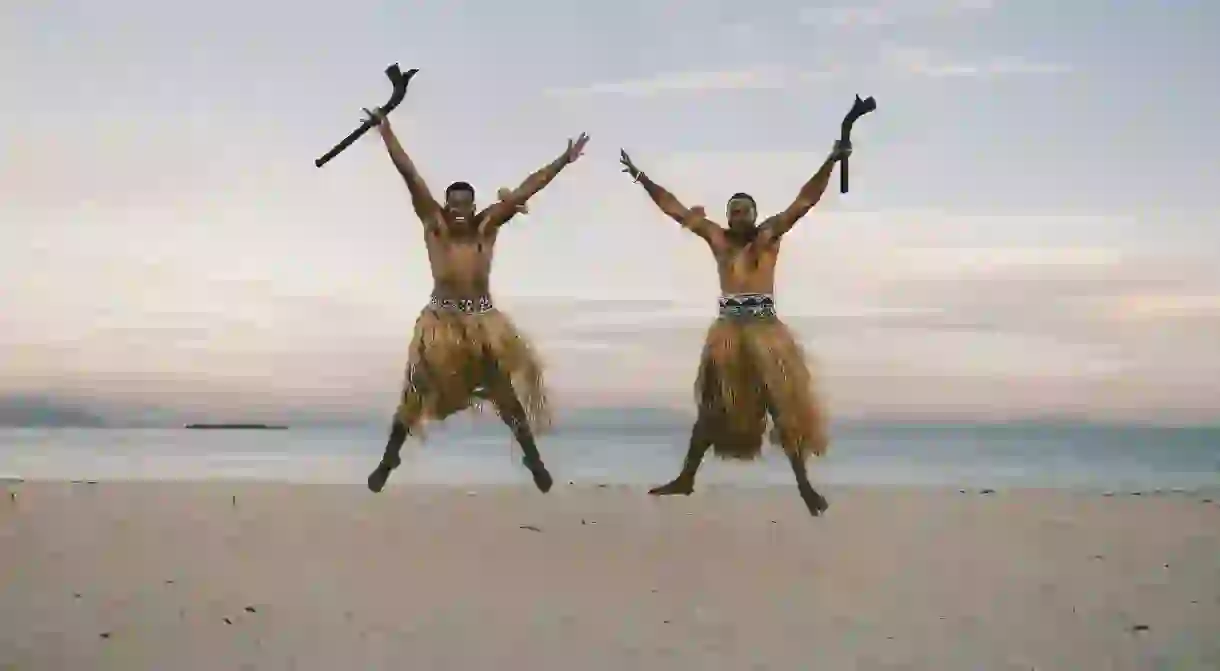18 Fijian Phrases You Need To Know Before You Travel

While English is one of the official languages of Fiji, it pays to know a few local phrases if you are travelling to this archipelago. Expect to greet and thank people in Fijian rather than English – and if you can manage a few extra phrases, Fijians will be thrilled with your ability to converse in their native tongue.
Getting ready for a trip to this beautiful Pacific Island nation? Check out this collection of tours, excursions and activities that you can book to enhance your experience in Fiji.
Bula
Bula is the most common word you’ll hear right across Fiji and it is used to greet people or say hello. When you say bula to someone, you are actually wishing them life.
Ni sa bula/Ni sa bula vinaka
Ni sa bula is used as either a more formal greeting or as a welcome. This greeting extends on bula and wishes a person good health and happiness.
Vinaka
Vinaka is the second most common Fijian word you can expect to hear. It means thank you. Fijians are very friendly and helpful, so remember to say vinaka after being served any food, drinks or if someone offers you help. Sometimes it is shortened to what sounds like ‘naka’.
Vinaka vaka levu
If you are extra grateful for someone’s help or actions, you can use vinaka vaka levu to say thank you very much. Restaurant staff may use vinaka vaka levu to thank you for dining with them, as do retail staff when you have made a purchase.
Moce
Moce means goodbye. The ‘c’ in Fijian is pronounced ‘th’ so the correct way to pronounce the Fijian word for goodbye is ‘mothay’.
Yadra
While bula can work at any time of day, yadra is the official Fijian way to greet someone in the morning.

Kerekere
Fijians are very courteous so it’s important to use proper manners. Kerekere means please.
Vacava tiko?
Vacava tiko? I am good thank you! This phrase means how are you? Remember, the c in Fijian is pronounced with a ‘th’. You can simply respond with tiko.
Au domoni iko
Here’s one for the lovebirds. Au domoni iko means I love you, in a romantic settingThe other version is aulomani iko which would be used to express love for family or other close relations.
Io
Io means yes. It is pronounced ‘ee-oh’.
Sega
Sega is no.
Sega na leqa
Sega na leqa is the Fijian equivalent of ‘hakuna matata’ – it means no worries! The q in Fijian is pronounced as ‘ng’ so leqa is said ‘lenga’. One of the English catchphrases in Fiji is ‘no hurry, no worry’. After all, you’re on island time in Fiji.
Sota tale
Sota tale is not a formal goodbye, instead it means see you later.
Dabe ira
Dabe ira is an instruction and means sit down, while tucake is stand up.
Lako mai ke
If you hear lako mai ke or just lako mai – it means come here! Someone is calling you over.
Mai kana
You’ll hear mai kana when you are being called for a meal. It means come and eat.
Baleta?
Wondering why someone has said something? Use baleta to ask why.
Vainui vinaka e nomu volau
You may hear this phrase just before you leave Fiji. Vainui vinaka e nomu volau is a wish for travellers to have a safe journey, like the Fijian version of bon voyage.
While tourists can easily get around speaking only English, do at the very least remember bula and vinaka out of respect to the people whose nation you’re visiting. Plus, they’re kind of fun to say, so expect to use them throughout your stay!













